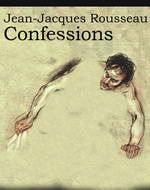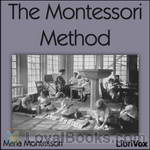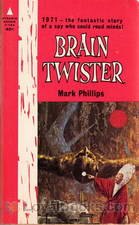|
Books Should Be Free Loyal Books Free Public Domain Audiobooks & eBook Downloads |
|
|
Books Should Be Free Loyal Books Free Public Domain Audiobooks & eBook Downloads |
|
Psychology Books |
|---|
|
Book type:
Sort by:
View by:
|
By: Henry Hazlitt (1894-1993) | |
|---|---|
 Thinking as a Science
Thinking as a Science
Written in a conversational style that will appeal to the younger person as well as seasoned professional, "Thinking as a Science" is timeless classic. Through eleven chapters, the last being a descriptive, annotated bibliography, Henry Hazlitt systematically takes the step-by-step on the process of introducing logic and context into the thinking process. The rather long chapter on "Reading and Thinking" clarifies several notions on where one needs to understand where mere knowledge acquisition ends and using reading the stimulate thinking begins.For an individual who was largely self taught, Hazlitt's contribution to the process of thinking is a must-read. | |
 Way to Will-Power
Way to Will-Power
"The Way to Will-Power" is far from a standard self-help book. With ample wit and an occasionally sardonic tone, American journalist and free-market advocate Henry Hazlitt debunks popular concepts about the will, incorporates classical conceptions about human nature into a coherent whole, and imparts to readers everyday wisdom on how to best live life. - Summary by Loren Eaton | |
By: Henry James (1843-1916) | |
|---|---|
 The American
The American
One of James’s early novels, The American plunges right in to one of the writer’s most enduring subjects, that of the innocent, or at least inexperienced, American abroad, seeking to come to terms with the social customs and conventions of an old European aristocracy (think of Daisy Miller, Portrait of a Lady, The Wings of the Dove and others). The aptly named Christopher Newman, having made a small fortune from business in California, has come to the Old World for the first time, determined to enlarge his experience by learning all he can of it... | |
 The Bostonians (Vol. 1 & 2)
The Bostonians (Vol. 1 & 2)
This bittersweet tragicomedy centers on an odd triangle of characters: Basil Ransom, a political conservative from Mississippi; Olive Chancellor, Ransom's cousin and a Boston feminist; and Verena Tarrant, a pretty, young protégée of Olive's in the feminist movement. The storyline concerns the struggle between Ransom and Olive for Verena's allegiance and affection, though the novel also includes a wide panorama of political activists, newspaper people, and quirky eccentrics. | |
By: Henry K. (Henry Kalloch) Rowe (1869-1941) | |
|---|---|
 Society Its Origin and Development
Society Its Origin and Development
| |
By: Herbert J. Hall (1870-1923) | |
|---|---|
 The Untroubled Mind
The Untroubled Mind
A very wise physician has said that “every illness has two parts—what it is, and what the patient thinks about it.” What the patient thinks about it is often more important and more troublesome than the real disease. What the patient thinks of life, what life means to him is also of great importance and may be the bar that shuts out all real health and happiness. The following pages are devoted to certain ideals of life which I would like to give to my patients, the long-time patients who have especially fallen to my lot. | |
By: Herbert Mayo (1796-1852) | |
|---|---|
 Popular Superstitions, and the Truths Contained Therein
Popular Superstitions, and the Truths Contained Therein
"In the following Letters I have endeavoured to exhibit in their true light the singular natural phenomena of which old superstition and modern charlatanism in turn availed themselves—to indicate their laws, and to develop their theory." In 14 letters, British physiologist Herbert Mayo is giving the reader an overview of popular superstitions of previous times, like vampirism, somnambulism or even ghost sightings, and exposing how in previous times they were treated with fear, ignorance and intolerance, often leading to crime, while he endeavours to give rational explanations for the phenomena with the goal to find treatments and cures for the afflicted. - Summary by Sonia | |
By: Herbert Silberer (1882-1922) | |
|---|---|
 Hidden Symbolism of Alchemy and the Occult Arts
Hidden Symbolism of Alchemy and the Occult Arts
| |
By: Hereward Carrington (1880-1959) | |
|---|---|
 The Problems of Psychical Research Experiments and Theories in the Realm of the Supernormal
The Problems of Psychical Research Experiments and Theories in the Realm of the Supernormal
| |
By: Hiram Chase | |
|---|---|
 Two Years and Four Months in a Lunatic Asylum
Two Years and Four Months in a Lunatic Asylum
Hiram Chase is a well liked Reverend in a small ministry in Utica. When his mental and physical health deteriorates, he is taken to Utica lunatic asylum. After his stay in the asylum, Hiram documents his experiences and those of other patients in the asylum. He describes his daily routine and the negative experiences he had, along with praising certain individuals whom he met during his "Two Years and Four Months in a Lunatic Asylum". | |
By: Howard Williams (1837-1931) | |
|---|---|
 The Superstitions of Witchcraft
The Superstitions of Witchcraft
| |
By: Hugo Münsterberg (1863-1916) | |
|---|---|
 Psychotherapy
Psychotherapy
Talking about viewing the Ocean "If I take the attitude of appreciation, it would be absurd to say that this wave is composed of chemical elements which I do not see; and if I take the attitude of physical explanation, it would be equally absurd to deny that such elements are all of which the wave is made. From the one standpoint, the ocean is really excited; from the other standpoint, the molecules are moving according to the laws of hydrodynamics. If I want to understand the meaning of this scene every reminiscence of physics will lead me astray; if I want to calculate the movement of my boat, physics alone can help me".(from the Introduction) | |
 Psychology and Social Sanity
Psychology and Social Sanity
| |
 On the Witness Stand: Essays on Psychology and Crime
On the Witness Stand: Essays on Psychology and Crime
Eight sketches by one of the pioneers of applied psychology, which highlight the mind of the witness on the witness stand, and how one can be an unreliable eyewitness. The last essay, on the prevention of crime, takes another direction. - Summary by TriciaG | |
By: Irwin Edman (1896-1954) | |
|---|---|
 Human Traits and their Social Significance
Human Traits and their Social Significance
| |
By: J Hudson Taylor (1832-1905) | |
|---|---|
 Union and Communion - or Thoughts on the Song of Solomon
Union and Communion - or Thoughts on the Song of Solomon
This little book, whose design is to lead the devout Bible student into the Green Pastures of the Good Shepherd, thence to the Banqueting House of the King, and thence to the service of the Vineyard, is one of the abiding legacies of Mr. Hudson Taylor to the Church. In the power of an evident unction from the Holy One, he has been enabled herein to unfold in simplest language the deep truth of the believer's personal union with the Lord, which under symbol and imagery is the subject of The Song of Songs. (From the Foreword by J Stuart Holden). | |
By: J. D. (Jirah Dewey) Buck (1838-1916) | |
|---|---|
 The New Avatar and The Destiny of the Soul The Findings of Natural Science Reduced to Practical Studies in Psychology
The New Avatar and The Destiny of the Soul The Findings of Natural Science Reduced to Practical Studies in Psychology
| |
By: J. H. Hill | |
|---|---|
 Astral Worship
Astral Worship
| |
By: J. Sadger (1867-1942) | |
|---|---|
 Sleep Walking and Moon Walking A Medico-Literary Study
Sleep Walking and Moon Walking A Medico-Literary Study
| |
By: Jacob A. Riis (1849-1914) | |
|---|---|
 Neighbors – Life Stories of the Other Half
Neighbors – Life Stories of the Other Half
These stories have come to me from many sources—some from my own experience, others from settlement workers, still others from the records of organized charity, that are never dry, as some think, but alive with vital human interest and with the faithful striving to help the brother so that it counts. They have this in common, that they are true. For good reasons, names and places are changed, but they all happened as told here. I could not have invented them had I tried; I should not have tried if I could... | |
By: James Allen (1864-1912) | |
|---|---|
 As a Man Thinketh
As a Man Thinketh
“A man is literally what he thinks, his character being the complete sum of all his thoughts,” is one of the quotes from James Allen's classic self help books, As a Man Thinketh. Published in 1902, it provides many more such insightful concepts on the power of thought and its effect on a human being's personality and behavior. This volume is more of a literary essay than a complete book and its title is based on a Biblical proverb, “As a man thinketh in his heart, so is he.” Taking this piece of ancient wisdom further, James Allen explores the far-reaching effects of the inner workings of a person's mind and motivation... | |
 The Mastery of Destiny
The Mastery of Destiny
James Allen’s inspirational and thought-provoking books have inspired millions. In The Mastery of Destiny, he instructs readers on developing self-control, willpower, concentration, and motivation. Through mental discipline, we can create a life of unending happiness, prosperity, and, most importantly, self-mastery. | |
 The Divine Companion
The Divine Companion
James Allen was a British philosophical writer known for his inspirational books and poetry and as a pioneer of the self-help movement.In the introduction Lily Allen writes: "It cannot be said of this book that James Allen wrote it at any particular time or in any one year, for he was engaged in it over many years and those who have eyes to see and hearts to understand will find in its pages the spiritual history of his life. It was his own wish that The Divine Companion should be the last manuscript of his to be published. 'It is the story of my soul,' he said, 'and should be read last of all my books, so that the student may understand and find my message in its pages.'" | |
 Life Triumphant: Mastering the Heart and Mind
Life Triumphant: Mastering the Heart and Mind
Are you tired of ignoring your conscience? Do you want to to follow the inward guide to wherever it may lead? Are you ready to realise your full potential even though those around you may have no idea how to relate? Then The Life Triumphant is for you. This book is uncompromising! It shows you the way to the realisation of that inward power that you have so long wanted to experience but have lacked the courage to pursue 100%. We were meant to be masters, not slaves. This book will show you "How to Master the Heart and Mind" and take up your place as the triumphant Director of your Life. - Summary by Andani Thakhathi | |
 Path to Prosperity (version 3)
Path to Prosperity (version 3)
‘The Path to Prosperity’ is part one of James Allen’s first published work titled ‘From Poverty to Power’ alternatively titled ‘The Realization of Prosperity and Peace’ .Part one is an empowering volume which is likely to enlighten the reader as to how much power they have over outward circumstances by virtue of their own thoughts. Allen regularly communicates this by providing examples on how the laws which govern the inner-world operate in a manner similar to the laws of nature... | |
 Way of Peace (version 3)
Way of Peace (version 3)
‘The Way of Peace’ is the second part of James Allen’s first published work titled ‘From Poverty to Power’ alternatively titled ‘The Realization of Prosperity and Peace’ . Where part one focused more on the power an individual possesses over their circumstances and environment, part two dives deeper into that pathway which leads to what every soul inwardly seeks. The simplicity of these teachings make them accessible to everyone and invaluable to those with an interest in practical transcendentalism... | |
 Eight Pillars of Prosperity (Version 2)
Eight Pillars of Prosperity (Version 2)
“Prosperity, like a house, is a roof over a man’s head, affording him protection and comfort. A roof presupposes a support, and a support necessitates a foundation. The roof of prosperity, then, is supported by the following eight pillars which are cemented in a foundation of moral consistency: 1. Energy 2. Economy 3. Integrity 4. System 5. Sympathy 6. Sincerity 7. Impartiality 8. Self-reliance A business built up on the faultless practice of all these principles would be so firm and enduring as to be invincible.” - Summary by James Allen | |
By: James Cardinal Gibbons (1834-1921) | |
|---|---|
 The Faith of Our Fathers
The Faith of Our Fathers
The Faith of Our Fathers: A Plain Exposition and Vindication of the Church Founded by Our Lord Jesus Christ is a book published in 1876 by archbishop James Gibbons, which became a best-selling conversion manual in the United States, and by 1980 was in its 111th printing.(From the preface) “The object of this little volume is to present in a plain and practical form an exposition and vindication of the principal tenets of the Catholic Church. It was thought sufficient to devote but a brief space to such Catholic doctrines and practices as are happily admitted by Protestants, while those that are controverted by them are more elaborately elucidated... | |
By: James Grant | |
|---|---|
 The Mysteries of All Nations Rise and Progress of Superstition, Laws Against and Trials of Witches, Ancient and Modern Delusions Together With Strange Customs, Fables, and Tales
The Mysteries of All Nations Rise and Progress of Superstition, Laws Against and Trials of Witches, Ancient and Modern Delusions Together With Strange Customs, Fables, and Tales
| |
By: James H. Leuba (1867-1946) | |
|---|---|
 Study in the Psychology of Religious Phenomena
Study in the Psychology of Religious Phenomena
"The present essay when complete will contain three parts. Of the two parts now published, the first is an analysis of the conversion process; it is divided into six subdivisions, corresponding to the natural phases of the experience: The Sense of Sin, Self-surrender, Faith, Joy, Appearance of newness, The Role of the Will. In Part II we place, side by side, the Christian doctrines concerning Justification, Faith, the Grace of God, the Freedom of the Will, and the corresponding facts as they appear in Part I... | |
By: James H. Schmitz (1911-1981) | |
|---|---|
 Ham Sandwich
Ham Sandwich
| |
By: James Hayden Tufts (1862-1942) | |
|---|---|
 The Ethics of Coöperation
The Ethics of Coöperation
| |
By: James Hinton (1822-1875) | |
|---|---|
 Mystery of Pain
Mystery of Pain
This book is addressed to the sorrowful, ... to whom their own or others' pain is a daily burden, upon whose hearts it weighs with an intolerable anguish. I seek to speak to these ; not as a teacher, but as a fellow. Sharing their feeling, and knowing well how vain is the attempt to throw off misery, or to persuade ourselves that life is better than it is, I would fain share with them also some thoughts that have seemed to me capable of casting a bright gleam of light athwart the darkness, and, if they are true, of bringing an immense, an incredible joy out of the very bosom of distress. - Summary by James Hinton | |
By: James Joyce (1882-1941) | |
|---|---|
 Ulysses
Ulysses
Banned in the United States and United Kingdom throughout the 1920s, Ulysses turned conventional ideas of the novel inside out with its bold new form, style and theme. Deeply rooted in the Greek myth of the hero of the Trojan War, Joyce bases his novel on Ulysses or Odysseus, who is doomed to voyage for ten years before returning home to Ithaca. Joyce had been deeply influenced by the Iliad and the Odyssey, which he had read from Charles Lamb's adaptations as a child. In fact, he considered him the epitome of the heroic ideal and constantly thought of giving the myth a new dimension in modern literature... | |
By: James Mark Baldwin (1861-1934) | |
|---|---|
 The Story of the Mind
The Story of the Mind
| |
By: James Sully (1842-1923) | |
|---|---|
 Illusions A Psychological Study
Illusions A Psychological Study
| |
By: James Weir (1856-1906) | |
|---|---|
 The Dawn of Reason or, Mental Traits in the Lower Animals
The Dawn of Reason or, Mental Traits in the Lower Animals
| |
By: Jean-Jacques Rousseau (1712-1778) | |
|---|---|
 Confessions
Confessions
Considered to mark the emergence of a new literary form, the unvarnished autobiography, Confessions by Jean-Jacques Rousseau was first published in 1782, four years after his death. The philosopher and educationist whose political philosophy is credited with having inspired the French Revolution, Rousseau was a man of immense wit, talent and depth of thinking. His skill in art, music, literature and cooking along with his magnificent body of work in philosophy, politics, education and sociology have made him a legendary figure... | |
By: John Addington Symonds (1840-1893) | |
|---|---|
 A Problem in Modern Ethics
A Problem in Modern Ethics
“Society lies under the spell of ancient terrorism and coagulated errors. Science is either wilfully hypocritical or radically misinformed.” John Addington Symonds struck many an heroic note in this courageous (albeit anonymously circulated) essay. He is a worthy Virgil guiding the reader through the Inferno of suffering which emerging medico-legal definitions of the sexually deviant were prepared to inflict on his century and on the one which followed. Symonds pleads for sane human values in... | |
By: John Aubrey (1626-1697) | |
|---|---|
 Miscellanies Upon Various Subjects
Miscellanies Upon Various Subjects
| |
By: John B. Bury (1861-1927) | |
|---|---|
 The Idea of Progress An inguiry into its origin and growth
The Idea of Progress An inguiry into its origin and growth
| |
By: John Berryman (1919-1988) | |
|---|---|
 Card Trick
Card Trick
The Psi Lodge had their ways and means of applying pressure, when pressure was needed. But the peculiar talent this fellow showed was one that even they'd never heard of...! | |
 Modus Vivendi
Modus Vivendi
| |
 Vigorish
Vigorish
| |
 The Right Time
The Right Time
| |
By: John D. Beresford (1873-1947) | |
|---|---|
 The Psychical Researcher's Tale - The Sceptical Poltergeist
The Psychical Researcher's Tale - The Sceptical Poltergeist
| |
By: John Dewey (1859-1952) | |
|---|---|
 Human Nature And Conduct - Part 1, The Place of Habit in Conduct
Human Nature And Conduct - Part 1, The Place of Habit in Conduct
John Dewey, an early 20th Century American philosopher, psychologist, educational theorist saw Social Psychology as much a physical science as Biology and Chemistry. This project encompasses Part 1 of 4 of his book Human Nature and Conduct. Dewey's uses the word "HABIT" as a specialized catch-all word to describe how a person and his/her objective environment interact. This interaction is the basis for moral judgement. Dewey writes: "All habits are demands for certain kinds of activity; and they constitute the self.” In other places he also asserts that "Habits are Will." - Summary by William Jones, Soloist | |
By: John M. (John Metcalf) Taylor (1845-1918) | |
|---|---|
 The Witchcraft Delusion in Colonial Connecticut (1647-1697)
The Witchcraft Delusion in Colonial Connecticut (1647-1697)
| |
By: John Poole Sandlands (1838-1915) | |
|---|---|
 Voice and Public Speaking
Voice and Public Speaking
I write for public speakers. I wish to take them into my confidence. I feel I can do them good. My object is to help them to speak with greater ease and efficiency. When the voice is developed and in a condition to answer the calls made upon it, then it will naturally seek to put its powers into operation.... Develop the powers of the voice and it will not be satisfied till it find scope for their exercise. This is a marvellous feature of the human voice, and yet, perhaps, it is more or less common to all the powers we possess... | |
By: John Ruskin (1819-1900) | |
|---|---|
 Sesame and Lilies
Sesame and Lilies
Sesame and Lilies proposes and answers the questions, how, what and why to read in the context of how and why to live. About earlier and later editions of the book containing the first two lectures alone, Ruskin wrote: "...chiefly written for young people belonging to the upper or undistressed, middle classes; who may be supposed to have choice of the objects and command of the industries of their life... if read in connection with “Unto This Last” it contains the chief truths I have endeavored through all of my past life to display… and am chiefly thankful to have learned and taught... | |
By: Josephine Turck Baker (1864-1942) | |
|---|---|
 Art of Conversation: Twelve Golden Rules
Art of Conversation: Twelve Golden Rules
Many of us find it challenging to speak to other people, for various reasons. Some of us are afraid of being called a bore. Others are worried that we will be accused of hogging attention. Many of us simply don't know what to talk about. This book is an entertaining and enlightening manual that may be able to help. Through a series of twelve dialogues between a man and a woman, we are introduced to twelve "golden rules" that will help us navigate the waters of interpersonal communication. He: Read by KevinS She: Read by Devorah Allen | |
By: Justus Hecker (1795-1850) | |
|---|---|
 The Dancing Mania
The Dancing Mania
Numerous theories have been proposed for the causes of dancing mania, and it remains unclear whether it was a real illness or a social phenomenon. One of the most prominent theories is that victims suffered from ergot poisoning, which was known as St Anthony’s Fire in the Middle Ages. During floods and damp periods, ergots were able to grow and affect rye and other crops. Ergotism can cause hallucinations, but cannot account for the other strange behaviour most commonly identified with dancing mania... | |
By: King of England James I (1566-1625) | |
|---|---|
 Daemonologie.
Daemonologie.
| |
By: L. T. (Leonard Trelawny) Hobhouse (1864-1929) | |
|---|---|
 Liberalism
Liberalism
| |
By: Laurence M. Janifer (1933-2002) | |
|---|---|
 Supermind
Supermind
FBI agent Kenneth Malone lives in a world where psionic powers such as telepathy and teleportation exist. He must cope with them as well as an FBI Director who leaves Malone continually confused about what situation he is being asked to handle and what he is expected to do about it. Someone or something is causing confusion in the U.S. Government, Unions, The Mafia, and other sectors of society and Malone has been given the job of finding the source of the confusion. A good story composed of science fiction and slap stick comedy with a bit of romance thrown into the mix. | |
 Sight Gag
Sight Gag
| |
 Hex
Hex
| |
By: Leo Tolstoy (1828-1910) | |
|---|---|
 A Letter to a Hindu
A Letter to a Hindu
| |
By: Leslie Stephen (1832-1904) | |
|---|---|
 Social Rights and Duties, Volume I (of 2) Addresses to Ethical Societies
Social Rights and Duties, Volume I (of 2) Addresses to Ethical Societies
| |
By: Lewis Terman (1877-1956) | |
|---|---|
 Intelligence of School Children
Intelligence of School Children
This book has been written for the rank and file of teachers, school supervisors, and normal-school students. Its purpose is to illustrate the large individual differences in original endowment which exist among school children and to show the practical bearing of these differences upon the everyday problems - Summary by Leon Harvey | |
 Intelligence Tests and School Reorganisation
Intelligence Tests and School Reorganisation
A collection of essays relating to the efforts to reorganise American schools to provide a more efficient and effective education system. Also includes discussions on adjustment rooms for students with special educational needs. Edited by Lewis Terman with co-contributors including Virgil E. Dickson, A. H. Sutherland, Raymond H. Franzen, C. R. Tupper, Grace Fernald. | |
 Genetic Studies of Genius, Volume 1: Mental and Physical Traits of a Thousand Gifted Children
Genetic Studies of Genius, Volume 1: Mental and Physical Traits of a Thousand Gifted Children
It should go without saying that a nation's resources of intellectual talent are among the most precious it will ever have. The study of the lives of gifted children initiated by Professor Lewis M. Terman, began in 1921, and has become the longest running longitudinal study in the field of psychology. Published over 5 volumes, the study is of historical significance to the field of educational science as well as psychology, for providing an insight into the nature of intelligence and achievement, but also challenging stereotypes of the personality of the gifted... | |
By: Lilian Whiting (1847-1942) | |
|---|---|
 The Life Radiant
The Life Radiant
| |
By: Margaret Alice Murray (1863-1963) | |
|---|---|
 The Witch-cult in Western Europe A Study in Anthropology
The Witch-cult in Western Europe A Study in Anthropology
| |
By: Marguerite Bernard and Edith Serrell | |
|---|---|
 Deer Godchild
Deer Godchild
A young New-Yorker of twelve heard an appeal for the Fatherless Children of France and his heart was touched. He had no money, but he resolved to give his spare time and his utmost energy to support a "kid in France." The French child needed ten cents worth of extra food each day, in order to grow up with strength and courage. The little American godfather earned those ten cents; he sold newspapers at the subway entrance, after school hours, and undertook an amazing variety of more or less lucrative odd jobs... | |
By: Maria Montessori (1870-1952) | |
|---|---|
 The Montessori Method
The Montessori Method
In the early 1900’s Dr. Maria Montessori began to reform educational methods with her work the ‘Case dei Bambini’ in Rome, Italy. Montessori began her work by developing methods to educate mentally retarded children, the method she developed was used with several children who at age eight took the state examinations in reading and writing, the children passed with above average scores. Because of this success (which is known as the ‘first Montessori Miracle’) Dr. Montessori was asked to open a school for children in Rome which she did... | |
 Dr. Montessori's Own Handbook
Dr. Montessori's Own Handbook
This is the authoritative book written by Montessori to describe her methods. It gives an overview of the Montessori Method as developed for 3 to 6 year olds. It is a short work, intended as a manual for teachers and parents, detailing the materials used as well as her philosophy in developing them. "As a result of the widespread interest that has been taken in my method of child education, certain books have been issued, which may appear to the general reader to be authoritative expositions of the Montessori system... | |
By: Marion Harland (1830-1922) | |
|---|---|
 Marion Harland's Complete Etiquette
Marion Harland's Complete Etiquette
Haven't you always wondered how to properly accept a formal dinner invitation? Perhaps you have a débutante under your wing, in which case you need to make sure her appearance in society goes perfectly, to increase her chances of a brilliant match. And what exactly would be your duties as her chaperon? These and many other questions are expertly answered by Marion Harland in this little volume. - Summary by Carolin | |
By: Mark Clifton (1906-1963) | |
|---|---|
 Sense from Thought Divide
Sense from Thought Divide
| |
By: Mark Phillips (Randall Garrett and Laurence M. Janifer) | |
|---|---|
 Brain Twister
Brain Twister
“Mark Phillips” is, or are, two writers: Randall Garrett and Laurence M. Janifer. Their joint pen-name, derived from their middle names (Philip and Mark), was coined soon after their original meeting, at a science-fiction convention. Both men were drunk at the time, which explains a good deal, and only one has ever sobered up. A matter for constant contention between the collaborators is which one. Originally published as That Sweet Little Old Lady, Brain Twister follows the adventures of FBI agent Kenneth J... | |
By: Mary F. Porter | |
|---|---|
 Applied Psychology for Nurses
Applied Psychology for Nurses
| |
By: Mary Wollstonecraft (1759-1797) | |
|---|---|
 Vindication Of The Rights Of Men, In A Letter To The Right Honourable Edmund Burke; Occasioned By His Reflections On The Revolution In France
Vindication Of The Rights Of Men, In A Letter To The Right Honourable Edmund Burke; Occasioned By His Reflections On The Revolution In France
Wollstonecraft's A Vindication of the Rights of Men attacks aristocracy and advocates republicanism. It was published in response to Edmund Burke's Reflections on the Revolution in France , which was a defence of constitutional monarchy, aristocracy, and the Church of England, and an attack on Wollstonecraft's friend, the Rev Richard Price. Hers was the first response in a pamphlet war that subsequently became known as the Revolution Controversy, in which Thomas Paine's Rights of Man became the rallying cry for reformers and radicals... | |
By: Matthew Hopkins (-1647) | |
|---|---|
 The Discovery of Witches
The Discovery of Witches
| |
By: Maurice Maeterlinck (1862-1949) | |
|---|---|
 The Unknown Guest
The Unknown Guest
| |
By: Max Heindel (1865-1918) | |
|---|---|
 The Rosicrucian Mysteries
The Rosicrucian Mysteries
A primer for those interested in the basic philosophy, beliefs & secrets of the Rosicrucians. | |
By: Melvin Powers (author still living) | |
|---|---|
 A Practical Guide to Self-Hypnosis
A Practical Guide to Self-Hypnosis
Published in 1961, A Practical Guide to Self-Hypnosis by Melvin Powers is a self help book that aims to bring the basic techniques of hypnosis to the ordinary reader and harness its legendary powers to one's own advantage. In fact, all forms of hypnosis are essentially self-hypnosis since the process does not work without the overt or covert cooperation of the person who is being hypnotized. The main difference is that all other forms of hypnosis require the guidance of a therapist or hypnotist while the one suggested here is a self-guided procedure... | |
By: Michael Sage (1863-1931) | |
|---|---|
 Mrs. Piper & the Society for Psychical Research
Mrs. Piper & the Society for Psychical Research
| |
By: Mohandas Karamchand Gandhi (1869-1948) | |
|---|---|
 Guide to Health
Guide to Health
Mahatma Gandhi, known today as a fascinating political leader and pacifist, also considered himself "something of an authority on matters of Health and Disease as well. Very few of us perhaps are aware that he is the author of quite an original little Health-book in Gujarati. [...] His views are of course radically different from the ordinary views that find expression in the pages of such books; in many cases, indeed, his doctrines must be pronounced revolutionary, and will doubtless be regarded by a certain class of readers as wholly impracticable... | |
By: Murray Leinster (1896-1975) | |
|---|---|
 The Leader
The Leader
| |
By: Newell Dwight Hillis (1858-1929) | |
|---|---|
 A Man's Value to Society Studies in Self Culture and Character
A Man's Value to Society Studies in Self Culture and Character
| |
By: Ontario. Ministry of Education | |
|---|---|
 Ontario Normal School Manuals: Science of Education
Ontario Normal School Manuals: Science of Education
| |
By: Patanjali | |
|---|---|
 The Yoga Sutras of Patanjali
The Yoga Sutras of Patanjali
Yoga sutras by Patanjali is a seminal work in yoga, this book is more about control of mind and the true goal of yoga. The sutras are extremely brief, and the translation in neat English makes it very easy for people to understand the ancient Sanskrit text. It starts with the birth and growth of spiritual man through the control of mind. In all, this is a "all in one" book for yoga philosophy written by the master himself. | |
By: Paul Bousfield | |
|---|---|
 Omnipotent Self
Omnipotent Self
“Nature has granted to all to be happy if we but knew how to use her gifts.”—Claudius. Often we feel "down" or "low", without being clinically depressed or seeking the aid of a doctor. This is a study, in layman's terms, of the causes and effects of mental strife, with suggestions on how we can improve our state of mind. Some listeners may be offended by the views on homosexuality expressed, but these reflect the views of the day. - Summary by Lynne Thompson | |
By: Peter Kropotkin (1842-1921) | |
|---|---|
 Mutual Aid: A Factor of Evolution
Mutual Aid: A Factor of Evolution
Mutual Aid: A Factor of Evolution is a book by Peter Kropotkin on the subject of mutual aid, written while he was living in exile in England. It was first published by William Heinemann in London in October 1902. The individual chapters had originally been published in 1890-96 as a series of essays in the British monthly literary magazine, Nineteenth Century. Written partly in response to Social Darwinism and in particular to Thomas H. Huxley’s Nineteenth Century essay, The Struggle for Existence, Kropotkin’s book drew on his experiences in scientific expeditions in Siberia to illustrate the phenomenon of cooperation... | |
By: Philip Ilott Roberts (1872-1938) | |
|---|---|
 Dry Dock of a Thousand Wrecks
Dry Dock of a Thousand Wrecks
After an introduction to the Ole Jerry McAuley Mission in the year 1912, many wonderful stories of destitute alcoholics and addicts making a quick recovery through a surrender to Christ Jesus. The book gives glimpses that the years of the highly esteemed Samuel H. Hadley have allowed for the “Evangelical Podium” to firmly take root in the Mission and is corroding the original purpose . The book tells of the on-goings in the new Ole Jerry McAuley Mission at 316 Water Street, NYC, during the early 1900's... | |
By: Pierre Janet (1859-1947) | |
|---|---|
 Major Symptoms of Hysteria
Major Symptoms of Hysteria
In this series of lectures delivered in English by the author while visiting the USA, Janet summarises the cutting edge perspective on the various forms of hysteria. The syndromes include generalised amnesic states and conversion disorders, and show Janet's highly influential views regarding the fundamental role of dissociation. The lectures provide an insight into the development of this area of psychiatry out of the neurological field of the nineteenth century, with Janet dropping some famous names from the history of medicine. | |
By: Pierre-Joseph Proudhon (1809-1865) | |
|---|---|
 System of Economical Contradictions; or, the Philosophy of Misery
System of Economical Contradictions; or, the Philosophy of Misery
| |
By: Ralph Adams Cram (1863-1942) | |
|---|---|
 Towards the Great Peace
Towards the Great Peace
| |